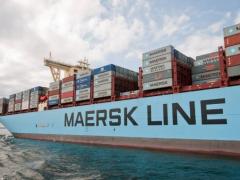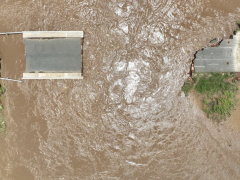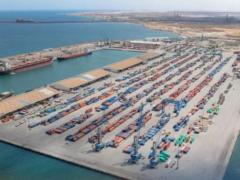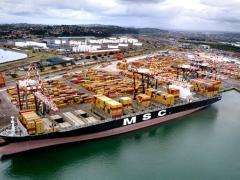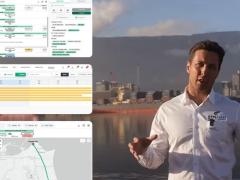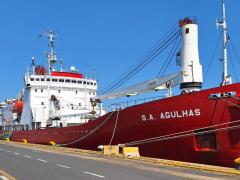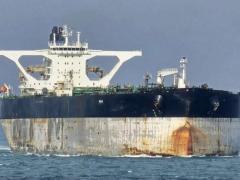West Africa has entered a new chapter in global shipping as the Mediterranean Shipping Company (MSC) becomes the first carrier to bring ultra-large container vessels (ULCVs) of 24 000 TEU capacity to the region.
The breakthrough in maritime logistics for the Gulf of Guinea, more of often in the news for violent piracy at sea, was marked by the arrival of the vessels MSC Diletta and MSC Türkiye on MSC’s Africa Express service.
The service links ports in China, South Korea and Southeast Asia with key West African countries including Ghana, Togo, Côte d’Ivoire and Cameroon.
The most significant moment came on April 23, when the MSC Diletta called at Lomé in Togo.
At 400 metres long and 61 metres wide it is the largest container ship ever to dock not just in Togo, but anywhere along the West African coastline. This milestone represents a considerable upgrade in the region’s maritime infrastructure, requiring precise coordination from local harbour pilots and tug operators.
The vessel’s cargo is bound for an extended inland market stretching across Nigeria, Gabon, Benin, Burkina Faso, Niger and Mali.
The Port of Lomé has undergone a decade of rapid transformation to reach this point.
Ten years ago, it handled just 500 000 TEUs annually. Today, that figure exceeds two million.
With deep-water berths, minimal congestion and improved operational efficiency, Lomé has outpaced regional rivals to become a leading transshipment hub. Its container terminal, operated jointly by MSC’s Terminal Investment Limited and China Merchants, now rivals the throughput and speed of top Mediterranean ports, moving more than 30 containers per hour at peak efficiency.
MSC’s decision to introduce 24 000-TEU vessels to West Africa is the result of a confluence of trends. Trade between Asia and West Africa continues to surge, driving demand for greater shipping capacity. Customers are also seeking more reliable, cost-effective transport options. At the same time, MSC has reaffirmed its long-term commitment to Africa’s economic development by investing in the infrastructure required to facilitate larger, faster and more integrated trade routes.
The presence of these mega-ships is set to reshape regional logistics. Larger vessels mean more cargo per voyage, which reduces transit times and overall shipping costs. Their arrival is expected to stimulate economic activity by increasing import and export volumes.
It is also likely to prompt other ports across West Africa to invest in upgrades and expansion, positioning the region to accommodate the next generation of global shipping.
MSC has confirmed that further ULCVs will be calling at Lomé in the coming weeks, confirming a marked shift in capacity for the line.



